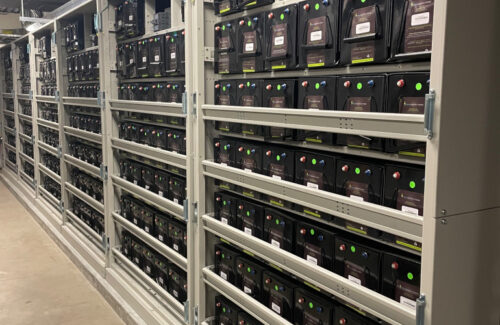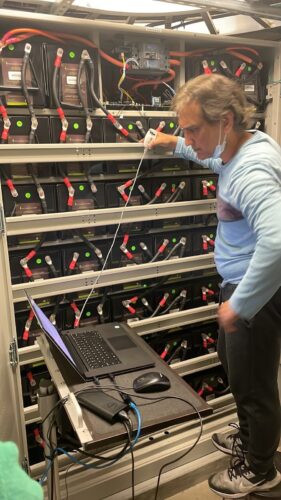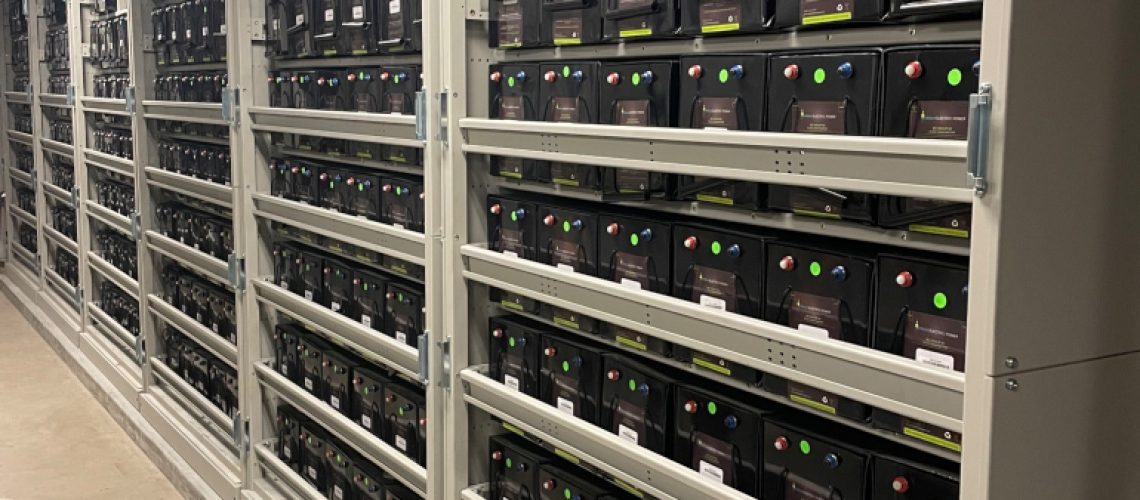Urban Electric Power has installed its rechargeable alkaline battery technology at the San Diego Supercomputer Center (SDSC), replacing 1,000 kWh of lead-acid batteries.
 The center, located at the University of California San Diego, has been an international leader in high-performance and data-intensive computing since its founding in 1985 with support from the National Science Foundation. SDSC hosts the research computing loads for the local campus, other UC campuses and a number of research collaborators both regionally and nationally, that work on topics of societal impact, including climate change and genomics. The massive computer clusters and petabytes of storage required for this work will now get their backup power from rechargeable alkaline batteries.
The center, located at the University of California San Diego, has been an international leader in high-performance and data-intensive computing since its founding in 1985 with support from the National Science Foundation. SDSC hosts the research computing loads for the local campus, other UC campuses and a number of research collaborators both regionally and nationally, that work on topics of societal impact, including climate change and genomics. The massive computer clusters and petabytes of storage required for this work will now get their backup power from rechargeable alkaline batteries.
“This project has transformed our data center’s model for resiliency,” said Christine Kirkpatrick, Division Director of Research Data Services at SDSC and Secretary General of the International Science Council’s Committee on Data (CODATA).
Kirkpatrick’s division provides everything a researcher might need, including storing, finding, sharing, and reusing data. “Our computing capacity outgrew the size of our generator and we couldn’t expand it further,” she said. “A big portion of our racks have only traditional lead-acid UPS coverage that in an outage would last 27 minutes. Some portion of our data center is only on street power, and goes out immediately when the grid fails. The Urban Electric Power technology is a game changer. We can now offer hours instead of minutes of power to our UPS customers, and with our next installation phase, expand battery backup to those on street power.”

Umer Anwer, Urban Electric Power’s VP for Systems Engineering, during installation
Urban Electric Power uses zinc manganese-dioxide cells — the chemistry of familiar household AA alkaline batteries — with a patented method of making them rechargeable for 10 years or more.
There are 5,200 individual alkaline cells in SDSC’s initial installation, which stores 1 MWh worth of electricity and replaces an array of lead-acid batteries now being recycled. An additional 5,200 cells are on the way, in a Phase 2 of the same size to be commissioned this summer at the San Diego site.
Urban Electric Power’s patented battery technology was invented by a team at the City College of New York led by Professor Sanjoy Banerjee, now the company’s CEO. They found a way to dope a zinc manganese-dioxide alkaline battery with copper, bismuth, and other ingredients to make it rechargeable. A proprietary separator between the cathodes allows repeated recharging without degradation, as the battery is cycled.
The resulting products for home, commercial, and grid-scale use are now being manufactured in Pearl River, New York, from commonly available materials. The technology has been UL-certified as fire-safe.
News item from UEP



